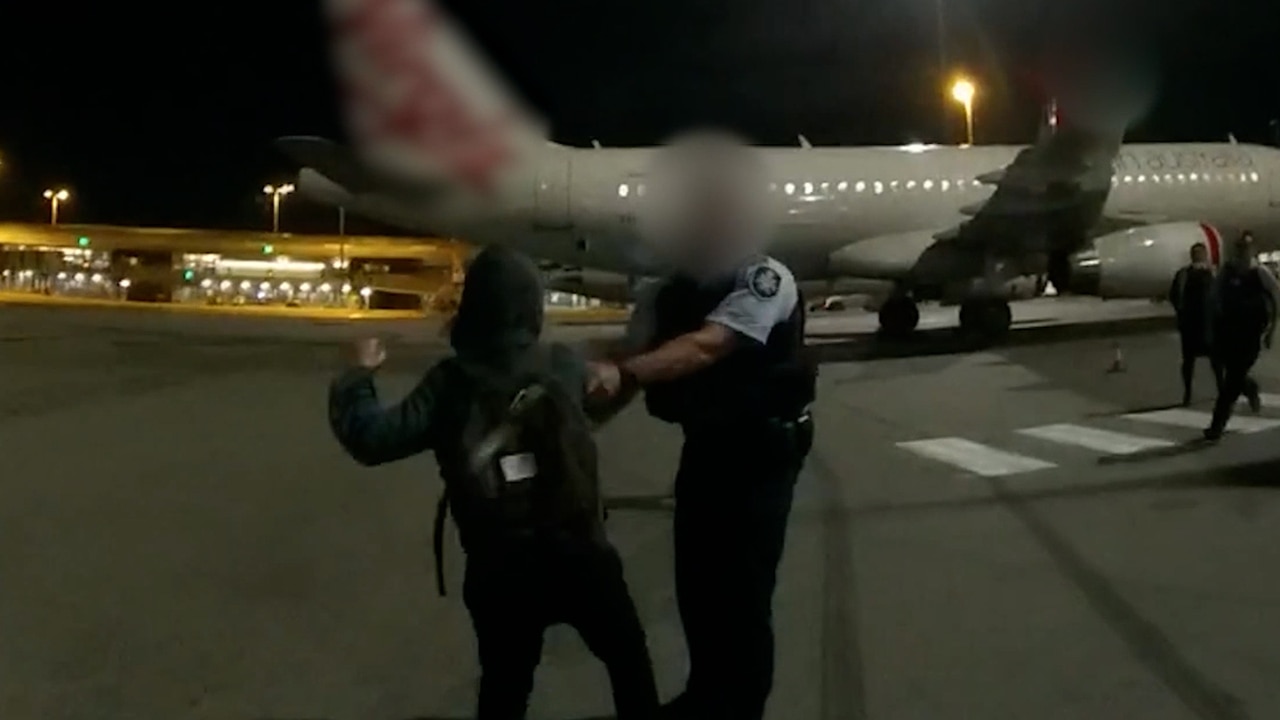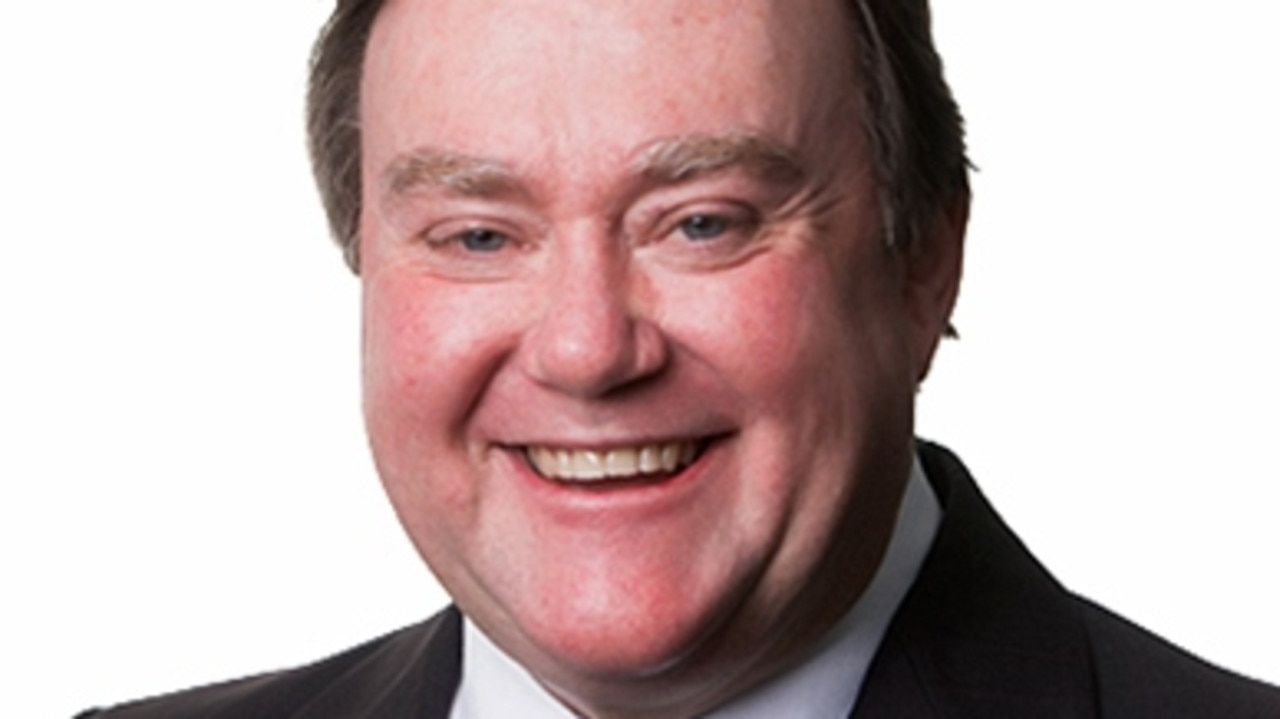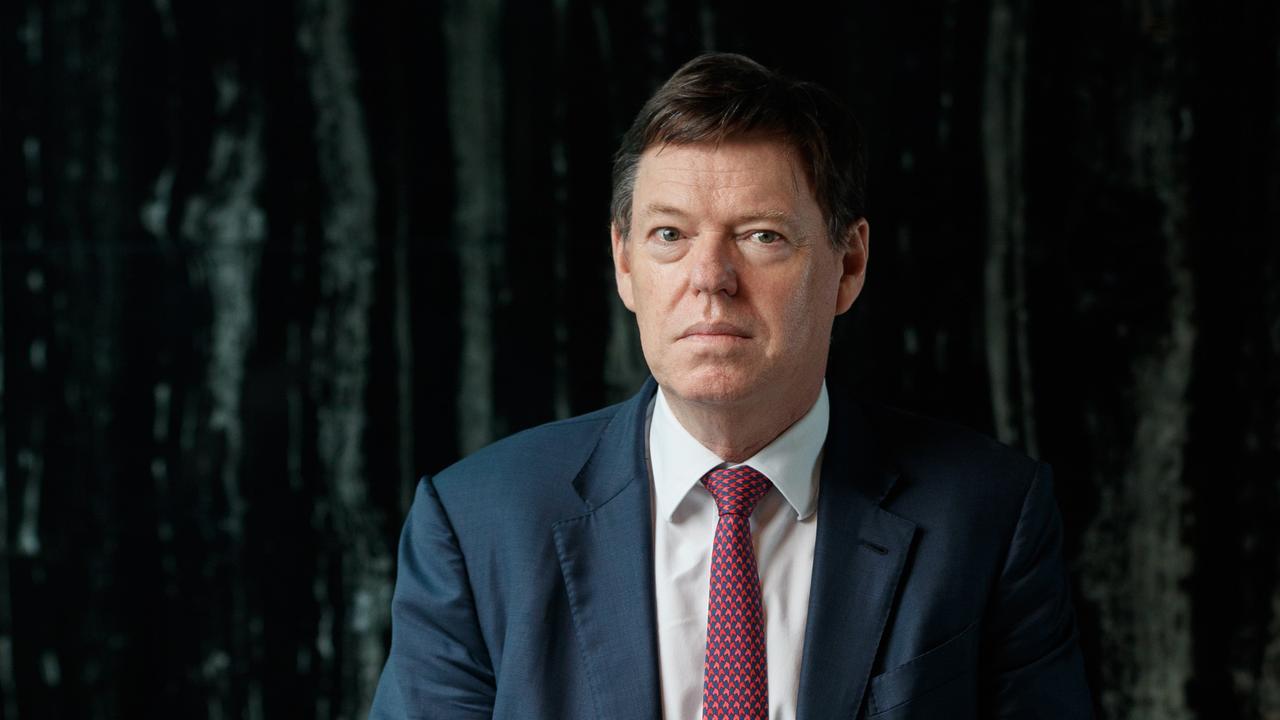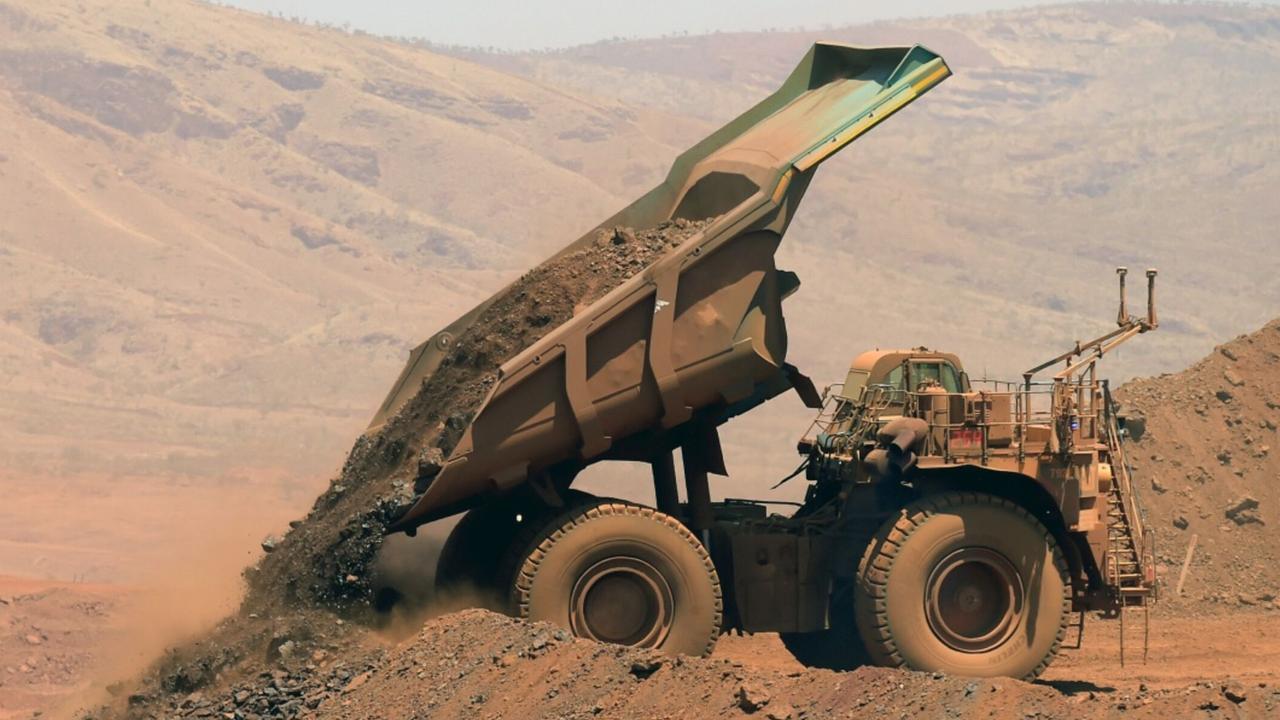A booze ban, education or fines? How to solve the problem of unruly airline passengers
The problem of poorly behaved airline passengers appears to be getting worse, prompting calls for greater education and restrictions on pre-flight drinks.

Business
Don't miss out on the headlines from Business. Followed categories will be added to My News.
Horrific scenes of bloodied federal police officers on the tarmac of Perth Airport, after allegedly being attacked by a pen-wielding passenger, this week have shone a light on the global problem of disruptive travellers.
Worldwide, there were more than 24,500 “unruly passenger incidents” across more than 50 airlines in 2023, or one in every 480 flights, up from one in 568 the previous year.
In Australia, federal police say the rate of incidents is consistent with the increase in passenger numbers — not necessarily getting worse, but not improving either.
Flight Attendants Association of Australia federal secretary Teri O’Toole is adamant passenger behaviour is deteriorating, with members frequently facing verbal abuse or worse for simply doing their job.
She said it was generally only the worst cases which required police involvement, which is perhaps why official statistics did not reflect the true extent of the problem.
“I think passengers forget that an aircraft is a place of work,” Ms O’Toole said.
“If you wouldn’t go into your place of employment and behave the same, you shouldn’t do it on an aircraft.”
In Monday’s incident in Perth, police were called to meet the Jetstar flight from Sydney when a passenger repeatedly refused directions to buckle her seatbelt for landing.
After being met by two police, it’s alleged she produced a pen and stabbed both officers, one in the arm and one in the face and neck.
The fact the incident escalated from noncompliance with crew instruction did not surprise Ms O’Toole.
She accepted commercial flights could be extremely “disempowering” for passengers — told where to sit, when to stand, which toilets to use, when to eat and so on — but rules are necessary for safety.
“We have to have discipline on an aircraft because it’s a flying fuel tank 35,000 feet in the air,” said Ms O’Toole.
“It’s not a bus. We can’t pull over and say get off, so there has to be some discipline.”

It was widely believed the best way to address the problem was through education, with the AFP preparing to launch a new campaign next month around the consumption of alcohol at airports.
A 2023 US study showed passenger misconduct on planes was predominantly caused by intoxication, with no shortage of examples to support the finding.
In December a drunken couple was arrested at Sydney airport after turning a Jetstar flight from Hobart into a nightmare for other passengers and crew.
It later emerged the couple had been drinking before the flight and took alcohol on board.
Similarly, a flight from Melbourne to Bangkok in September was forced to divert to Darwin to offload a drunk passenger who was shouting racial slurs at crew.
Other passengers reported the man appeared intoxicated at the start of the 10-hour flight and was drinking from a bottle, eventually confiscated by crew.
Europe’s biggest airline Ryanair has proposed travellers be restricted to no more than two alcoholic drinks at airports before boarding flights.
It’s been suggested the cap could be enforced by requiring airport bars and lounges to stamp a traveller’s boarding pass when a drink was ordered to show how much they’d had.
The Australian Airports Association did not have a view on the Ryanair proposal, but a spokesman stressed their members took a “zero-tolerance approach to poor behaviour”.
“All airport licensees and airlines, including airline lounges, are required to adhere to responsible service of alcohol rules,” said the spokesman.
It was understood some airport lounges now stocked only mid-strength beers in an effort to reduce the risk of intoxication, while airlines said guests were closely monitored.
Federal police had also adopted a “proactive prevention” approach at airports, devoting more than 60,000 hours to high-visibility patrols, identification checks, targeted sweeps and fence patrols.
In addition, officers were trained in behavioural analysis to spot any red flags exhibited by people as they queued for check-in or bag drop.
Commander Craig Bellis said the fundamental role of the AFP’s aviation operations was to ensure a safe and secure aviation environment.
“We have more than 500 members within the AFP’s Aviation Command across nine dedicated airports,” said Commander Bellis.
“These members boast additional specialist capabilities and training to ensure a safe and secure aviation environment.”
More Coverage
Originally published as A booze ban, education or fines? How to solve the problem of unruly airline passengers









